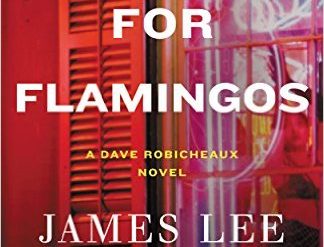
With the publication in 2003 of The Da Vinci Code, former prep school English teacher Dan Brown entered the ranks of the bestselling authors of all time. Together, four of his novels about Harvard “symbologist” Robert Langdon—Angels & Demons, The Lost Symbol, and Inferno as well as Da Vinci—had already sold a total of more than 200 million copies worldwide as of 2012. So it’s no surprise that his most recent effort, Origin, topped the New York Times bestseller list immediately upon its publication.
The principal theme is religion
Like the four previous novels in the Langdon series, the principal theme in Origin is religion. Professor Robert Langdon is an intellectual superhero gifted with eidetic memory and an encyclopedic knowledge of signs, symbols, and the history of art. In every one of the books in the series, Langdon comes face to face with an historic religious mystery, confronts evildoers with massive powers at their disposal, and defeats them all with the aid of a gorgeous woman.
In Origin, the mysteries are the greatest of all: Where do we come from? Where are we going? Langdon’s friend and former student, billionaire scientist-entrepreneur Edmond Kirsch, has discovered what he believes to be the answers to these questions. A showman par excellence, Kirsch has contrived to gather a worldwide audience to witness his live presentation of these answers—and Langdon has a front-row seat. As does that gorgeous woman, of course.
Origin (Robert Langdon #5) by Dan Brown ★★★★☆
Quantum computing and the antipope
Origin is set almost exclusively in Spain, primarily in the Basque town of Bilbao and in Madrid and Barcelona. The story is fast-moving and suspenseful—essential elements in any Dan Brown thriller—yet the action is frequently punctuated with digressions to explain the religious, scientific, and historical facts Brown weaves into the tale. He gets away with this, because those digressions are invariably interesting. Dan Brown does his research. In the case of Origin, the facts concern such topics as quantum computing, the antipope of the Palmarian Church, and the architecture of the legendary Catalán architect Antoni Gaudí.
About the author
It’s difficult to determine what religious beliefs, if any, Dan Brown himself possesses. However, my guess is that Edmond Kirsch expresses some semblance of those beliefs in his presentation: “My friends, I am not saying I know for a fact that there is no God. All I am saying is that if there is a divine force behind the universe, it is laughing hysterically at the religions we’ve created in an attempt to define it.”
It’s difficult to believe that Brown takes organized religion seriously, given how cavalierly he treats the religious institutions that figure in his books. Yet Brown remarked in a 2009 interview in Parade magazine that “The more science I studied, the more I saw that physics becomes metaphysics and numbers become imaginary numbers. The farther you go into science, the mushier the ground gets. You start to say, ‘Oh, there is an order and a spiritual aspect to science.'” But that view is in no way inconsistent with the words he puts in Kirsch’s mouth.
For related reading
Awhile ago I reviewed the fourth installment in the Robert Langdon series, Inferno: So, he wrote The Da Vinci Code. What else can he do? Suffice it to say I wasn’t thrilled with the book. I found Origin much more enjoyable.
You might also enjoy my posts:
- Top 10 mystery and thriller series
- 20 excellent standalone mysteries and thrillers
- 30 outstanding detective series from around the world
- Top 20 suspenseful detective novels
- Top 10 historical mysteries and thrillers
And you can always find my most popular reviews, and the most recent ones, on the Home Page.

























